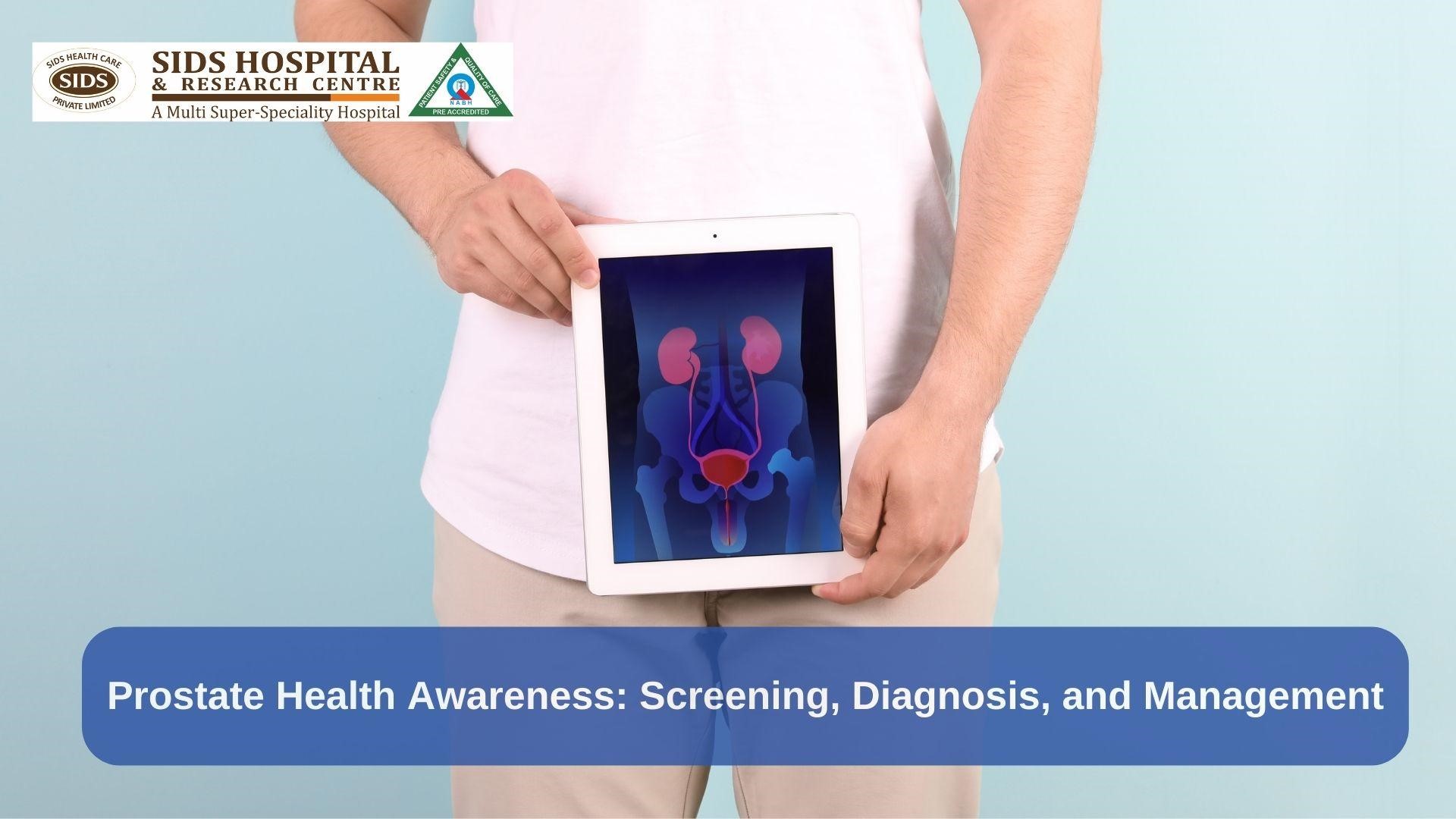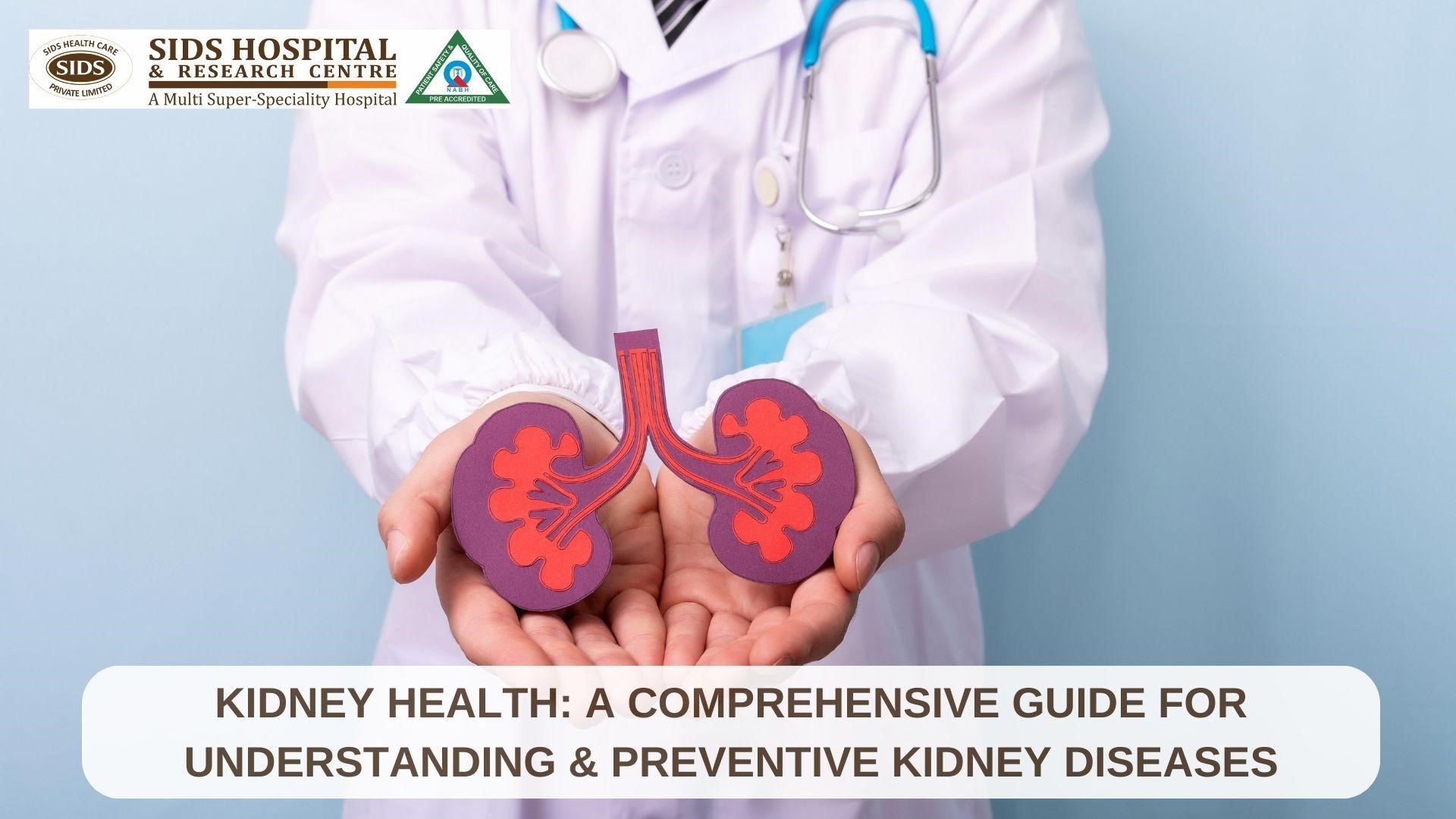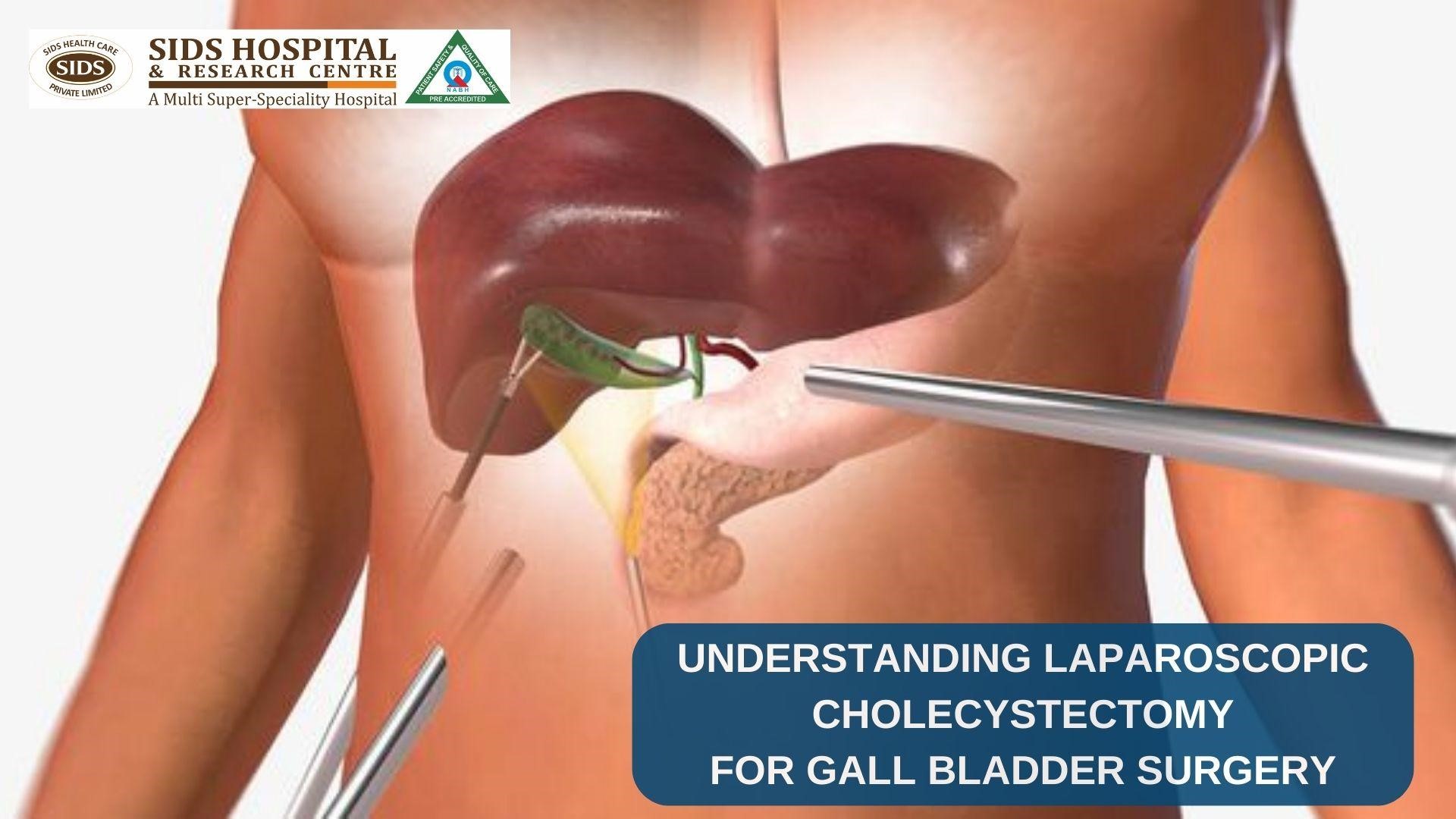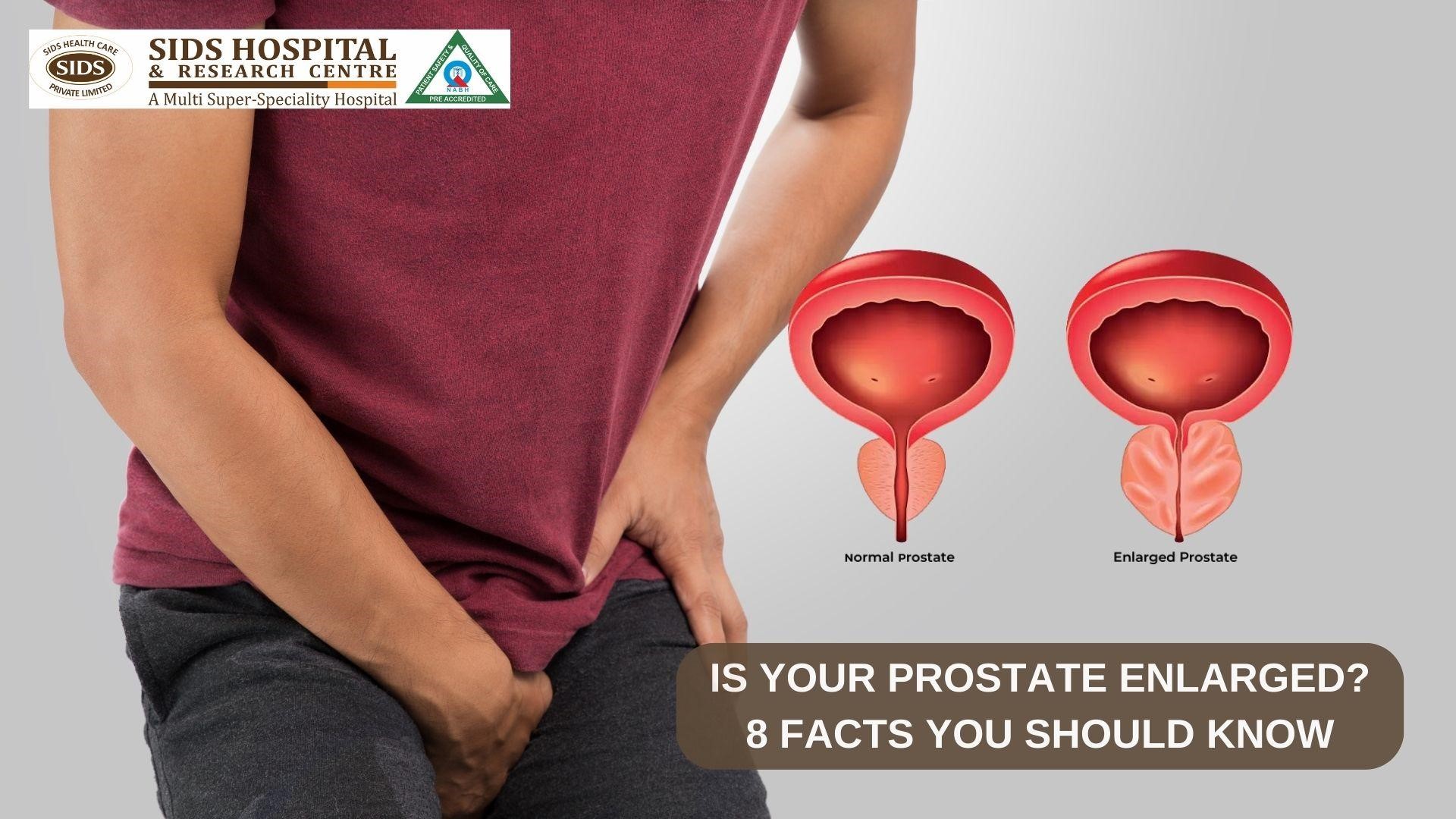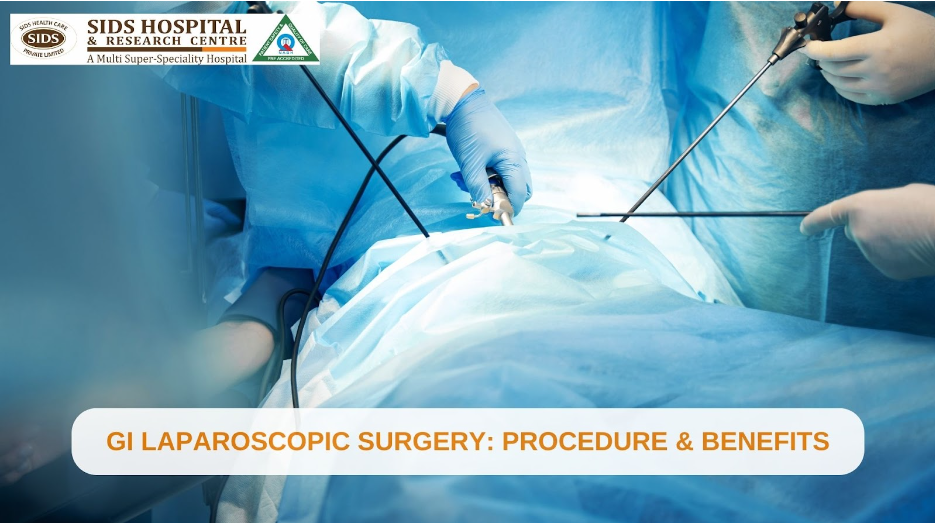Prostate Health Awareness: Knowing About Screening, Diagnosis, and Management From the Best Urologist in Surat at SIDS Hospital
Prostate health is a critical aspect of men’s well-being, and raising awareness about the importance of proactive care is essential. While prostate issues are common, understanding the need for screening, diagnosis, and management is crucial for maintaining optimal health. In this blog our experts at SIDS hospital, being the best urologists in Surat, will make you understand the significance of prostate health, explore screening methods, discuss the diagnostic process, highlight effective management strategies, etc.
Understanding Prostate Health:
The prostate, a small gland located below the bladder, plays a vital role in the male reproductive system. As men age, the prostate can undergo changes, leading to conditions such as benign prostatic hyperplasia (BPH) or prostate cancer. Proactive measures, including regular screenings, are crucial for early detection and effective management of these conditions.
Prostate Cancer Screening:
Prostate cancer is a prevalent concern among men, but early detection significantly improves the chances of successful treatment. SIDS hospital, known as one of the best hospitals in Surat, uses two primary screening methods for prostate cancer: the prostate-specific antigen (PSA) blood test and digital rectal examination (DRE).
The PSA test measures the level of a protein produced by the prostate, and elevated PSA levels may indicate potential issues. While an elevated PSA level doesn’t necessarily confirm cancer, it serves as an essential indicator for further investigation. DRE involves a physical examination of the prostate by a healthcare professional, who assesses its size, texture, and any abnormalities.
Men aged 50 and older should discuss the benefits and risks of prostate cancer screening with their healthcare providers. The best urologists in Surat at SIDS hospital, recommend that those with a family history of prostate cancer or other risk factors may need to initiate discussions earlier. The decision to undergo screening should be based on individual health factors and shared decision-making between the patient and their healthcare provider.
Diagnosis through Biopsy:
If abnormalities are detected during screening, a prostate biopsy may be recommended to confirm or rule out the presence of cancer. During a biopsy, small tissue samples are extracted from the prostate for laboratory analysis. While the idea of a biopsy may be intimidating, it remains the gold standard for diagnosing prostate cancer definitively.
Healthcare providers carefully consider the results of screenings, imaging studies, and the individual’s overall health before recommending a biopsy. It’s important for individuals to openly discuss any concerns or questions with their healthcare team to make informed decisions about their prostate health.
Active Surveillance for Low-Risk Prostate Cancer:
There are cases where prostate cancer is detected but is considered as low-risk and is unlikely to progress rapidly. In such cases active surveillance is a suitable management approach. Active surveillance involves close monitoring through regular PSA tests, DREs, and sometimes repeat biopsies. This approach allows healthcare providers to intervene if there are signs of disease progression while avoiding unnecessary treatments and their potential side effects.
Active surveillance is a personalized strategy that considers the specific characteristics of the cancer and the individual’s overall health. It provides a balance between monitoring the cancer’s behaviour and minimizing the impact of aggressive treatments on the quality of life.
Treatment Options for Prostate Cancer:
For cases where intervention is necessary, various treatment options are available. These may include surgery, radiation therapy, hormone therapy, or a combination of these approaches. The choice of treatment depends on factors such as the stage and aggressiveness of the cancer, the individual’s overall health, and personal preferences.
Surgical interventions, such as a prostatectomy, involve removing the entire prostate gland. Radiation therapy uses targeted energy to eliminate cancer cells, while hormone therapy aims to suppress the production of hormones that fuel the growth of prostate cancer. Each treatment option has its benefits and potential side effects, emphasizing the importance of informed decision-making in collaboration with our healthcare professionals from SIDS, the best hospital in Surat.
Lifestyle Modifications for Prostate Health:
Beyond medical interventions, adopting a healthy lifestyle can contribute to overall prostate health. Maintaining a balanced diet rich in fruits, vegetables, and whole grains while limiting red and processed meats is associated with a lower risk of prostate cancer. Regular exercise, tobacco cessation, and moderation in alcohol consumption also play key roles in supporting prostate health.
Conclusion:
Prostate health awareness is paramount for men of all ages. By understanding the importance of regular screenings, actively participating in the diagnostic process, and exploring appropriate management strategies, individuals can take charge of their prostate health. Open communication with healthcare providers, shared decision-making, and a commitment to a healthy lifestyle contribute to a comprehensive approach in promoting and maintaining optimal prostate health. Remember, prioritizing prostate health today is an investment in a healthier and more vibrant future.


 Book Appointment
Book Appointment.png) Video Consultation
Video Consultation
